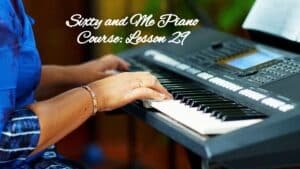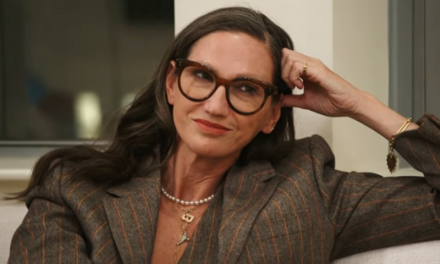
The intensity and frequency of threatening events over the past few months has had a profound impact on me. Collectively, we seem to be humming at a higher level of stress that reflects a growing feeling that the world we once thought predicable and stable may not be that way at all. It’s as if we woke up in Kansas, instead of Oz.
For 30 years, I worked exclusively with aging adults in my psychology practice. For the most part, folks came to me to explore managing feelings of loneliness, purposelessness, being invisible, and dealing with physical pain and loss of functioning.
In 2018, though, the conversations turned to seeking safety. That was when a series of wildfires decimated much of northern California. These were followed by other environmental catastrophes. All of which impacted older adults in ways no one had ever seen before. And then came COVID. Wave after wave of stress and distress.
It’s One Thing After Another!
Here we are in 2024 and things haven’t eased up one bit! All of us are experiencing heightened levels of vulnerability. What has changed, however, is our capacity for managing the stress. That has diminished.
Back in 2018, many of my friends worried about finding and keeping a safe place to live. Others stressed about keeping older cars running so they could make it to doctor’s appointments and do their shopping.
I remember folks expressed sadness and regret over the lack of quality relationships with their children and grandchildren. Others shared that they were afraid to walk in their neighborhoods because they might fall due to poor maintenance of walkways and roads.
Helplessness and Worry
Here’s the thing about helplessness and worry – the experience is uncomfortable and unwanted; but it is not unfamiliar. Back in 1941, the United States was working its way out of the worst depression it had ever seen. Franklin Delano Roosevelt gave an inspiring speech, intended to address the vulnerability felt by our nation at that time. It became known as the “Four Freedoms.”
Four Freedoms Today
Roosevelt’s four freedoms were freedom of speech, freedom of worship, freedom from want, and freedom from fear. While the President’s goal was political, his speech elevated these freedoms to a loftier notion that has resonated in many different ways over the decades, and resulted in enshrining these values in government programs, i.e., Social Security and Medicare.
Freedom of Speech Today
What does it mean to be able to speak freely in our nation today? A friend is afraid to let her physician know how much pain she is in because she uses Oxycontin and doesn’t want to be labeled as an addict. Another is afraid to speak up about the harassment from her building manager because that person can have her evicted. But it goes further. The greatest challenge we currently face is feeling safe enough to disagree with one another.
Freedom of Worship Today
What does it mean to be able to worship freely? We are seeing a resurgence of religious intolerance and labeling people based on who they choose to pray to. For many older adults, getting to the church, synagogue, ashram, or mosque they worship at is problematic because of lack of transportation or accommodation for hearing and sight-impaired worshipers.
Freedom from Want Today
Probably the greatest concern for people I know is economic insecurity. So many rely on Social Security alone and have to depend on supplemental housing vouchers, food distribution, and medical care. Threats to their well-being now come regularly. Limitations on services, underfunding of programs, lack of qualified staff, complicated and obtuse requirements for eligibility, all are seemingly insurmountable barriers leaving them feeling hopeless and alone.
Freedom from Fear Today
Many aging adults fear for their future because it can be taken away so easily. Ageism pervades our society, turning individuals who remain vital and have things to contribute into marginalized observers. While this is beginning to change, there are many vulnerable aging adults who are barely hanging on. We have seen the enemy, and it is us.
We Can Do Better!
Cumulative stress and fear often lead to inaction – people feel frozen and unable to make decisions. To address this, we need to start with ourselves. We need to acknowledge that things are not what they should be. Sometimes this is the hardest part.
It is as if saying out loud that things are bad will somehow offend the gods, and we will be punished for revealing the truth! Ironically, the opposite is often true. By stating (or writing) “I am scared!” (or whatever you are calling your fear or distress), it frees it from our inner dungeon. Once outside of the inner gerbil wheel of anxiety, it is much more easily managed and dealt with.
Taking Positive Action
Make a decision to do something positive for yourself. Take action on a small scale – make a gratitude list, tell someone a joke, say a kind word, offer a hug. If these are things that are easy for you, do more of them. If they are difficult, try something that makes you feel good first, then share that experience with someone else.
Cumulative stress and fear often lead to withdrawal. If you are disconnected from things that bring you a sense of joy, purpose, or delight, make a list of what you would do to change that. It might be as simple as listening to a favorite piece of music or going for a walk. Once you have that list, identify three action steps you can take today to manifest those things in your life.
Never Turn Your Back on the Waves
I can be easily overwhelmed by the enormity of what is being asked of me from day to day. To manage my overwhelm, I often imagine myself at the beach. Somedays, the ocean is calm, and the waves gently massage the shore. Other days, the ocean’s waves are enormous, and I need to retreat a bit further up the sand, in order to not be swept away. Either way, the advice I have always been given is never turn your back on the waves.
Top Image: Hana Beach (photo credit: Mary L. Flett).
Let’s Have a Conversation:
Which of the four freedoms have been violated for you with age? Do you feel free to live your life, or are you fearful? How do you manage anxiety due to aging?





